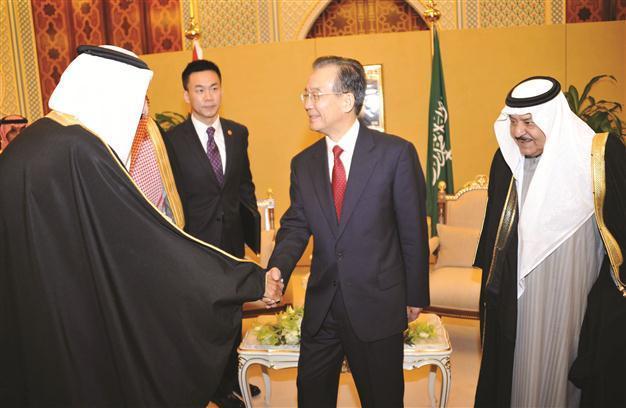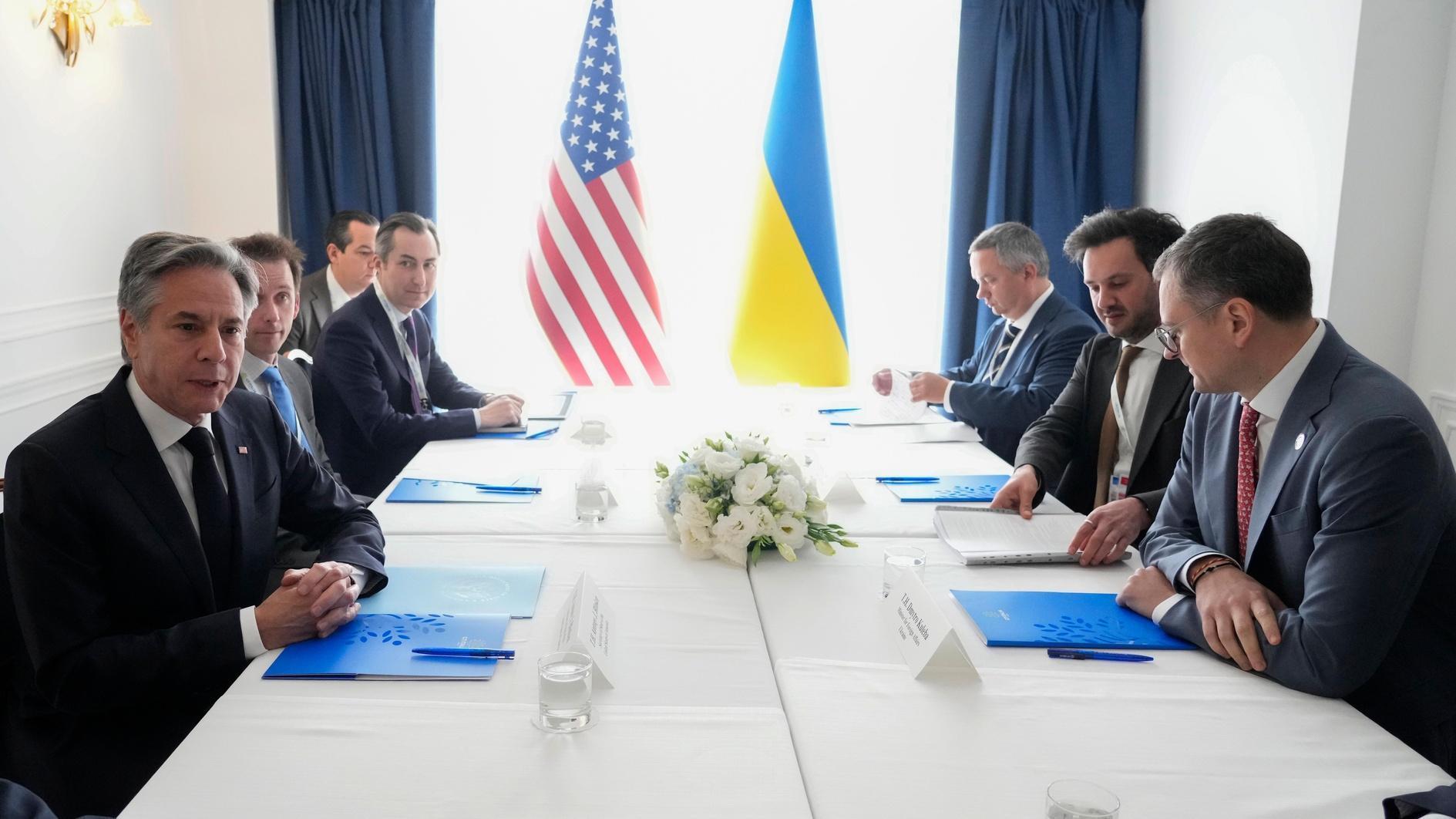Iran tells Gulf to avoid adventurers
TEHRAN - Reuters

In this photo Jan 14 photo Chinese Premier Wen (L), is welcomed by an unidentified Saudi official before a meeting with Saudi crown prince Nayef bin Abdel-Aziz. AP photo
Iran’s Gulf Arab neighbors should not raise their production to replace Iranian oil if the European Union goes ahead with a ban on Iranian crude imports, Iran’s OPEC governor said yesterday.The EU has agreed in principle to ban imports of Iranian oil, while the United States has pressured Asian buyers to reduce imports to starve Tehran of revenue for its disputed nuclear program.
Iran OPEC Governor Mohammad Ali Khatibi said Tehran would see any move to fill in for Iranian crude as Gulf Arab oil producers siding with Iran’s western opponents.
“If the oil producing Gulf states give the green light to replacing Iran’s oil these countries would be the main culprits for whatever happens in the region -- including the Strait of Hormuz,” Khatibi told the Sharq daily newspaper.
“Our Arab neighbor countries should not cooperate with these adventurers... These measures will not be perceived as friendly.”
EU countries have proposed “grace periods” on existing contracts of one to 12 months to allow companies to find alternative suppliers before implementing an embargo.
Khatibi said there was a good chance that the EU would not go through with its threat to ban Iranian crude imports if Gulf Arab producers refused to back it.
Saudi Arabian Oil Minister Ali al-Naimi said on Jan. 14 that the world’s biggest oil exporter was ready and able to meet any increase in demand, without making any reference to sanctions on OPEC rival Iran, while Chinese Premier Wen Jiabao visited the kingdom to boost cooperation with China’s biggest oil supplier.
China is also Iran’s biggest oil buyer, importing over half a million barrels of Iranian crude a day to fuel its economic growth, making Beijing wary of upsetting Tehran and an opponent of sanctions against it.
China criticized U.S. sanctions on a Chinese company selling refined petroleum products to Iran, calling Washington’s punishment an unreasonable step beyond international sanctions on Tehran’s nuclear program.
On Jan. 14, the Obama administration invoked U.S. law to sanction China’s state-run Zhuhai Zhenrong Corp, which it said was Iran’s largest supplier of refined petroleum products. “Imposing sanctions on a Chinese company based on a domestic (U.S.) law is totally unreasonable,” the Chinese Foreign Ministry spokesman Liu Weimin said in a statement issued on the ministry’s website late on Jan. 14.
Iran, OPEC’s second-largest oil producer after Saudi Arabia with output of about 3.5 million barrels per day, has threatened to block the vital oil export route of the Strait of Hormuz if further sanctions prevent it from selling oil.
British Foreign Secretary William Hague, meanwhile, said yesterday that he was confident the EU would impose far-reaching sanctions on Iran’s oil industry and possibly other sectors at an EU meeting next week.
















